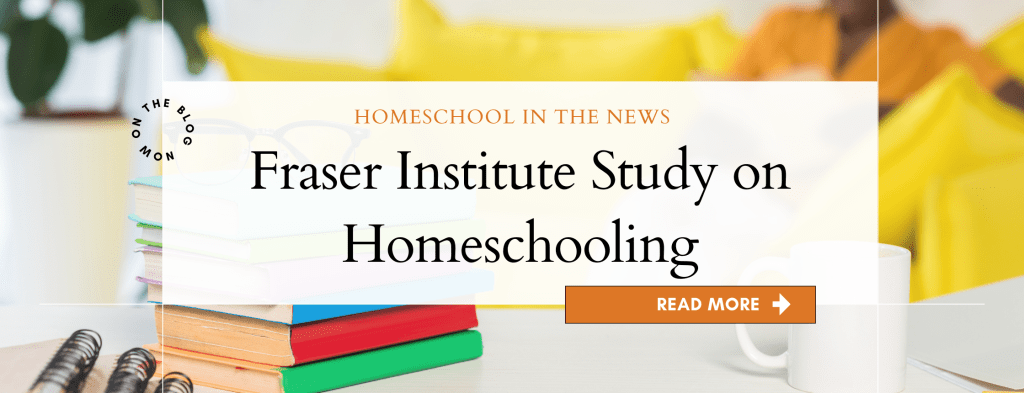
Home schooling is an effective alternative to the public school system
The Fraser Institute issued a press release on October 9 [2001] summarizing their study entitled, “Home Schooling: From the Extreme to the Mainstream”.
Here are some quotes from Claudia Hepburn, director of education policy at the Institute:
In the past decade, home schooling has proven itself to parents and researchers to be a highly effective alternative to public and private schooling.
Although parents home school their children for a myriad of reasons, the principal stimulus is dissatisfaction with public education.
Although home schooling is neither desirable nor possible for all families, it has proven itself to be a highly successful and relatively inexpensive alternative to public and more formal private education. As such, it merits both the respect of regulators and the further attention of researchers.
Popular belief holds that home schooled children are socially backward and deprived, but research shows the opposite: that home schooled children are actually better socialized than their peers. Some studies have shown that home schooled children are happier, better adjusted, more thoughtful, mature and sociable than children who attend institutional schools.
Research of homeschooled children in the U.S. and Canada indicates that they routinely outperform their peers in both public and private schools. International evidence appears to show the same trends.
Although there is less research available in Canada than in the U.S. the academic performance of Canadian homeschoolers seems to be comparable to that of U.S. homeschoolers. The largest study that was done in Canada, to-date, found that homeschooling students, on average, scored at the 80th percentile in reading, at the 76th percentile in language and at the 79th percentile in mathematics. The Canadian average for all public and privately educated students is the 50th percentile.
Parents choose to homeschool their children for many reasons: 1) opportunity to impart a particular set of values and beliefs, 2) higher academic performance, 3) lack of discipline in public schools, 4) the expense of private schools for large families, 5) a physically safer environment in which to learn.
The Fraser Institute was established in 1974 and is an independent public policy organization based in Vancouver with offices in Calgary and Toronto.
For further information, and/or for a copy of the study:
[web editor’s note: link no longer valid — see current link to the most recently updated version of the study, below]
Web Addendum: for another summary of the Fraser Institute study, see “Children schooled at home have better social skills — Challenges orthodoxy” by Julie Smyth in the National Post, October 15, 2001.
“Home Schooling: From the Extreme to the Mainstream, 2nd Edition” was released in 2007. “This second edition builds on the original with new research and data. The paper considers the educational phenomenon of home schooling in Canada and the United States, its regulation, history, growth, and the characteristics of practitioners before reviewing the findings on the academic and social effects of home schooling.“
The most updated version of the study as of June 2015 is Home Schooling in Canada: The Current Picture — 2015.
